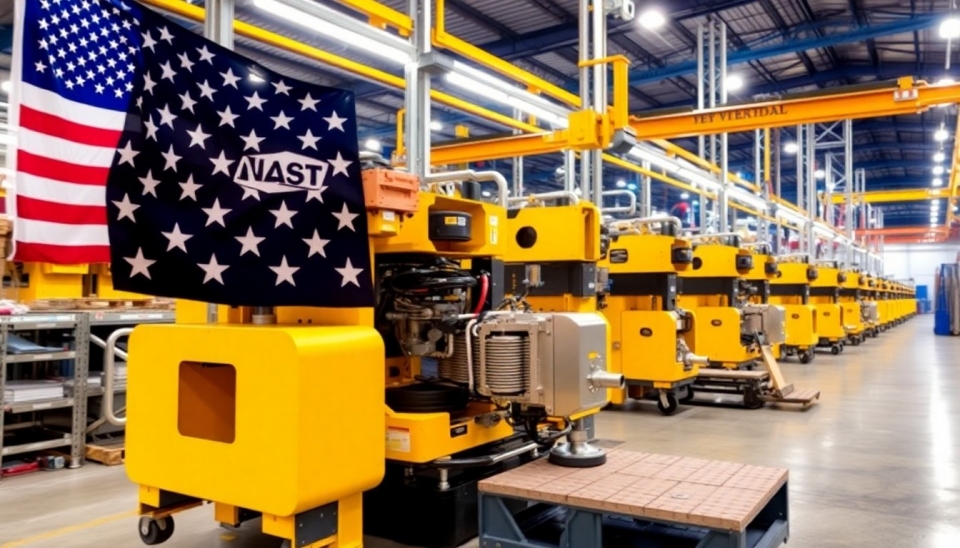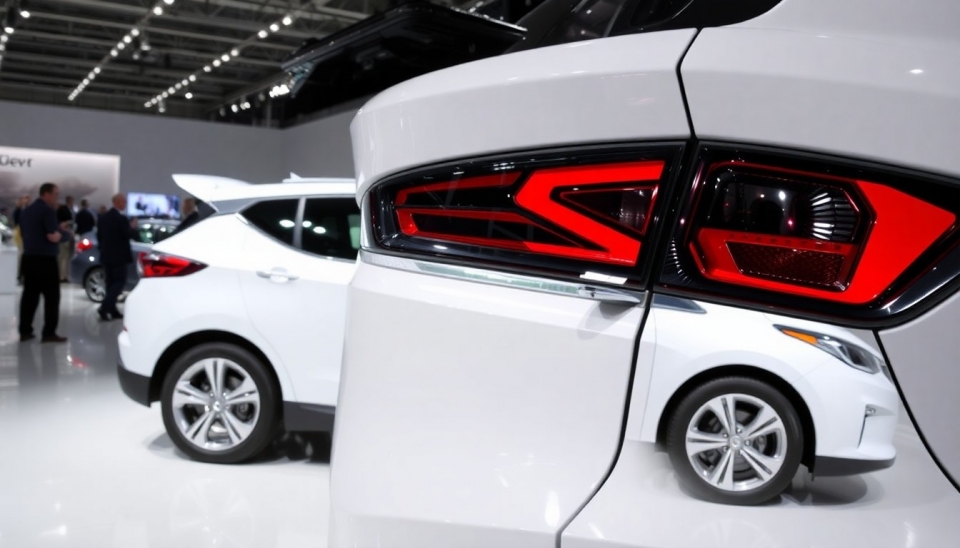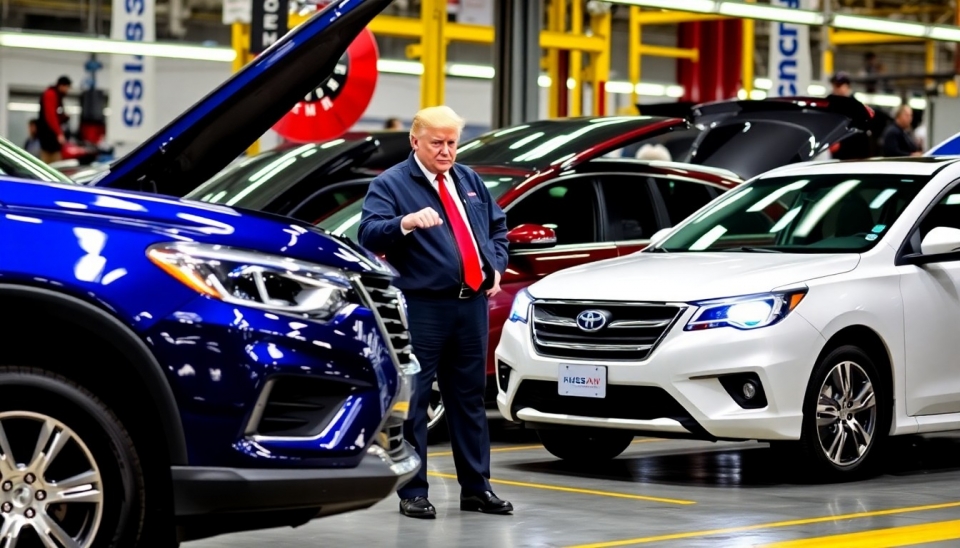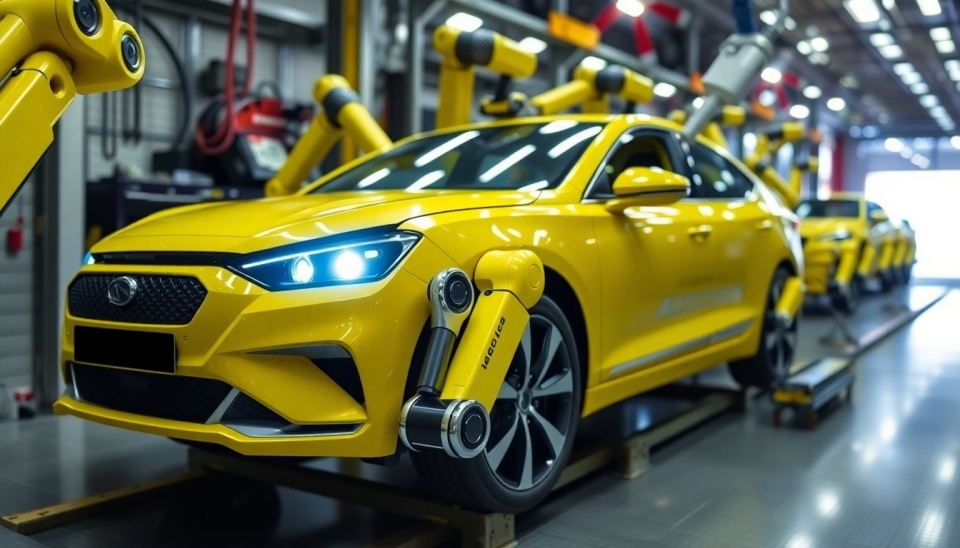
Companies Aim to Increase US Manufacturing: New Investments and Localization
In recent weeks, many large companies across various sectors have announced plans to ramp up production in the United States, fueling hopes for a recovery of the American economy and a reduction in dependence on foreign supplies. This wave of expansions, driven by both economic and political factors, is part of a broader trend towards localized production that is being observed nationwide.
Continue reading
Ford Plans Major Vehicle Recalls in 2025
Ford has announced plans for a massive vehicle recall set to take place in 2025. This decision affects numerous models produced between 2015 and 2022, driven by growing concerns over vehicle quality and safety, as well as manufacturing process issues. The recalls will involve both cars and SUVs, impacting thousands of owners.
Continue reading
Nissan Sees Opportunities in Import Tariff Increases
Nissan, one of the world's leading automotive manufacturers, is turning its attention to changes in the tariff policy of the United States that could open new prospects for growth and enhance its competitiveness in the market. Recently increased levels of tariffs on imported vehicles and automotive parts may impact manufacturers' strategies, especially those relying on overseas supplies.
Continue reading
Manufacturing Association Proposes Balanced Regulatory Framework to Collaborate with Trump Administration
Important news from the economy: one of the most influential manufacturing associations in the United States has introduced a new plan aimed at creating a balanced regulatory system. This step is a result of the association's desire to work more effectively and constructively with the Trump administration, as well as to provide new directions for regulations that foster economic growth and job creation.
Continue reading
GM Temporarily Lays Off 200 Workers Amid EV Production Challenges
General Motors (GM) has announced a temporary layoff of 200 workers at its electric vehicle (EV) plant due to supply chain issues and market changes. This decision comes as the company is investing heavily in electric vehicles and striving to adapt to new demand conditions.
Continue reading
New Tariffs: Who Wins and Loses in the Automotive Industry?
Recent changes in international trade policy have heightened concerns regarding the 25% import tariffs on cars and auto parts. These measures will affect both manufacturers and consumers, sparking a wide range of reactions in the automotive sector. Amidst supply chain crises and rising price pressures, the new tariffs offer fresh opportunities for local manufacturers while adversely impacting certain market segments.
Continue reading
McCormick Takes Bold Step by Eliminating Artificial Food Dyes Following Pressure from Environmental Advocates
American spice and food manufacturer McCormick has announced its decision to stop using artificial food dyes in its products. This decision comes under pressure from environmental regulators and advocates, including Robert F. Kennedy Jr., who has actively campaigned against the use of harmful additives in food. Kennedy, often referred to as "RFK Jr.," has raised a wave of public outrage regarding the potential health risks of artificial colorings, particularly for children.
Continue reading
UAW Applauds Trump's 25% Tariff on Auto Imports as a Win for Autoworkers
United Auto Workers (UAW) have expressed their support for former President Donald Trump's decision to impose a 25% tariff on imported automobiles. This tariff, they argue, stands as a significant victory not only for the American workforce but also for the preservation of the U.S. auto industry. By ensuring that imported vehicles are taxed heavily, the UAW believes this policy will help bolster domestic manufacturing, create jobs, and protect existing ones.
Continue reading
AI-Powered Swarm Robots Revolutionize Car Manufacturing
In the world of technology, new achievements always attract attention, but the emergence of a swarm of robots that can collaborate and accelerate the car manufacturing process is becoming a real sensation. Researchers from MIT have developed innovative steps in robotics, where dozens of small robots work together to significantly reduce the assembly time of vehicles. This approach not only increases efficiency but also reduces production costs.
Continue reading
Hyundai Announces Major Investment in US Manufacturing: A $20 Billion Commitment
A significant news has emerged from the automotive industry: Hyundai Motor Group has announced its plans to invest $20 billion in American manufacturing. This move reflects the company's strong interest in developing production in the U.S. and its intention to expand its capabilities in the local market.
Continue reading